- عنوان کتاب: A History of Economics – The Co-Evolution of Economics and the Economy
- نویسنده: Volker Caspari
- حوزه: مبانی اقتصاد
- سال انتشار: 2024
- تعداد صفحه: 236
- زبان اصلی: انگلیسی
- نوع فایل: pdf
- حجم فایل: 3.80 مگابایت
اقتصاد بدون شک یکی از علوم اجتماعی است. موضوع آن حوزه فعالیت انسانی است که مربوط به بازتولید مادی است، یعنی بقا به معنای وسیع. از ابتدایی ترین شکل تولید و اقتصاد، شکار و گردآوری، تا سرمایه داری مالی و صنعتی معاصر، مردم به دنبال دستیابی به کالاها و خدمات لازم برای زندگی از طریق «فعالیت ها» بوده اند. یکی از راه های انجام این کار، اعمال خشونت و قدرت است. از یک طرف می توان دزدی و غارت کرد، از طرف دیگر می توان گروه خاصی از مردم را تحت سلطه خود درآورد و آنها را مجبور به کار (برده) کرد. با ارجاع به فرانتس اوپنهایمر، میتوان در اینجا از ابزارهای سیاسی صحبت کرد. یک راه صلحآمیز دیگر صرفاً کار کردن است. فرانتس اوپنهایمر این را ابزار اقتصادی می نامد. اگرچه تئوری اقتصادی در درجه اول به ابزار دوم مربوط می شود، اما نباید اهمیت خشونت و اعمال قدرت را دست کم گرفت. همه این فعالیت ها در ابتدا و در درجه اول هدف مستقیم به دست آوردن غذا بود. اما آنها همچنین شامل فعالیت های غیر مستقیم مانند تولید تبر دستی، کمان یا گاوآهن هستند. با افزایش تقسیم کار، این فعالیت ها گسترش می یابند و ممکن است ارتباط مستقیم خود را با هدف اصلی از دست بدهند. اگرچه همه این فعالیت ها توسط افراد برنامه ریزی و انجام می شود، افراد معمولاً در یک گروه یا جامعه عمل می کنند. تقسیم کار و همکاری، یعنی اقدام مشترک و هماهنگ از یک سو و اقدام انفرادی از سوی دیگر، اساساً دو سوی فعالیت انسانی هستند. این عمل، چه فردی و چه مشارکتی، بر اساس قواعد و هنجارهایی صورت می گیرد که انسان ها به خود داده اند و می دهند. آنها همچنین «موجودات» را ایجاد می کنند، یعنی اشکال سازمان و نهادهایی که نیازی به ایجاد، تغییر یا لغو دائمی ندارند و بنابراین می توانند چندین عمر انسان را دوام بیاورند. این عمل چه فردی و چه مشارکتی بر اساس قوانین و هنجارهایی صورت می گیرد که افراد به خود داده اند و می دهند. آنها همچنین “موجودات” را ایجاد می کنند، یعنی اشکال سازمان و نهادهایی که نیازی به ایجاد، تغییر یا لغو دائمی ندارند و بنابراین می توانند چندین عمر انسان را دوام بیاورند. انسان ها همچنین در «رویرویی» مستقیم با طبیعت، تکنیک هایی را برای بقای مستقیم و غیرمستقیم ایجاد می کنند. علاوه بر دانشی که در اشیاء بتنی (به عنوان مثال ابزارها) تحقق می یابد، دانش رویه ای نیز ایجاد می شود (مانند نحوه تهیه غذا، نحوه گرم کردن اجاق گاز). شیوه حفظ و انتقال این دانش، خود یک «تکنیک» جداگانه (داستان و نوشتن) است. سنت ها و تصاویر شفاهی احتمالاً بسیار قدیمی تر از نوشتار هستند. اگر روی توسعه اقتصادی واقعی تمرکز کنیم، با تاریخ اقتصادی سروکار داریم. تاریخ اندیشه اقتصادی به دانش بازتابی مردم از اقتصاد مربوط می شود. با این حال، این پیشفرض میگیرد که مردم در زمانهای گذشته به این منطقه فکر میکردند و تفکر مربوطه خود را در مورد آن با استفاده از یک «تکنیک» به ما منتقل میکردند و بنابراین آن را در دسترس ما قرار میدادند. برای منطقه فرهنگی اروپا، نوشته هایی از یونان باستان باقی مانده است. تا آنجایی که من می دانم، از دوره های قبل هیچ گزارش مکتوبی وجود ندارد. بنابراین این اولین دوره ای است که از آن می توانیم تاریخ «دانش بازتابی درباره اقتصاد» را آغاز کنیم.
Economics is undoubtedly one of the social sciences. Its subject is the field of human activity concerned with material reproduction, i.e. survival in the broadest sense. From the earliest form of production and economy, hunting and gathering, to contemporary financial and industrial capitalism, people have sought to obtain the goods and services necessary for life through “activities”. One way of doing this is through the exercise of violence and power. On the one hand one can steal and rob, on the other hand one can subjugate certain groups of people and force them to work (slaves). With reference to Franz Oppenheimer, one could speak here of political means.1 Another peaceful way would be simply to work. Franz Oppenheimer calls this the economic means. Although economic theory is primarily concerned with the latter means, one should not underestimate the importance of violence and the exercise of power. All these activities initially and primarily served the direct purpose of obtaining food. But they also include indirect activities, such as the production of a hand axe, a bow or a plough. As the division of labour increases, these activities expand and may lose their direct relation to the original goal. Although all these activities are planned and carried out by individuals, people usually act within a group or community. Division of labour and cooperation, i.e. joint, coordinated action on the one hand and individual action on the other, are essentially the two sides of human activity. This action, whether individual or cooperative, takes place according to rules and norms that human beings have given and continue to give themselves.They also create “entities”, i.e. forms of organisation and institutions that do not need to be constantly created, changed or abolished, and can therefore survive several human lifetimes. This action, whether individual or cooperative, takes place according to rules and norms that people have given and continue to give themselves. They also create “entities”, i.e. forms of organisation and institutions, which do not need to be constantly created, changed or abolished and can therefore survive several human lifetimes. Humans also create techniques for direct and indirect survival in direct “confrontation” with nature. In addition to knowledge materialised in concrete objects (e.g. tools), procedural knowledge is also created (e.g. how to prepare food, how to heat a stove). The way in which this knowledge is preserved and passed on is itself a separate “technique” (storytelling and writing). Oral tradition and images are probably much older than writing. If we focus on real economic development, we are dealing with economic history. The history of economic thought is concerned with people’s reflective knowledge of the economy. This presupposes, however, that people in earlier times thought about this area and that they transmitted their respective thinking about it to us by means of a “technique” and thus made it accessible to us. For the European cultural area, there are surviving writings from ancient Greece. As far as I know, there are no written records from earlier periods. This is therefore the earliest period from which we can begin a history of “reflective knowledge about the economy”.
این کتاب را میتوانید از لینک زیر بصورت رایگان دانلود کنید:
Download: A History of Economics



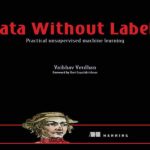
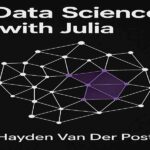
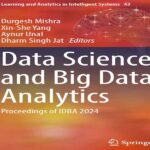

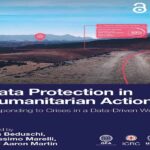

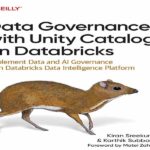
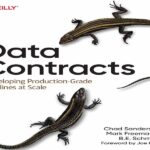
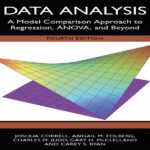
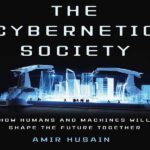
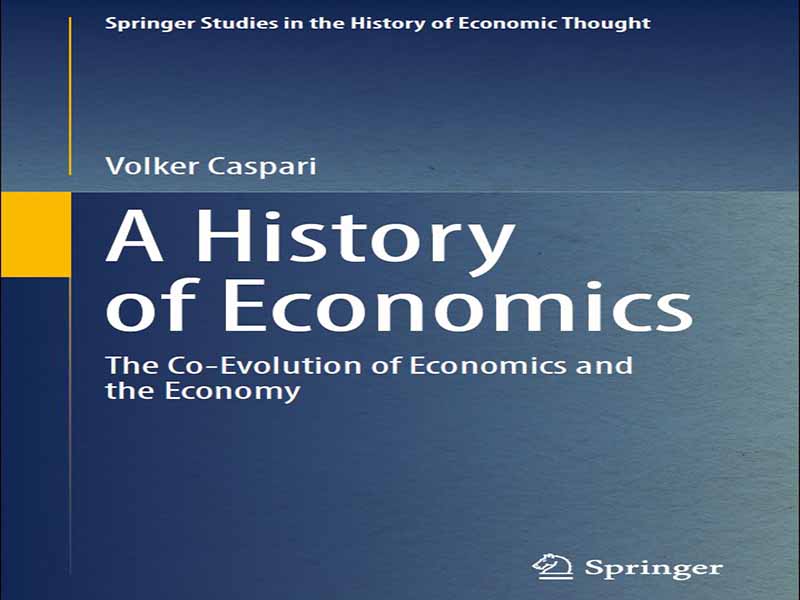

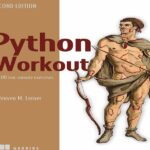




















نظرات کاربران